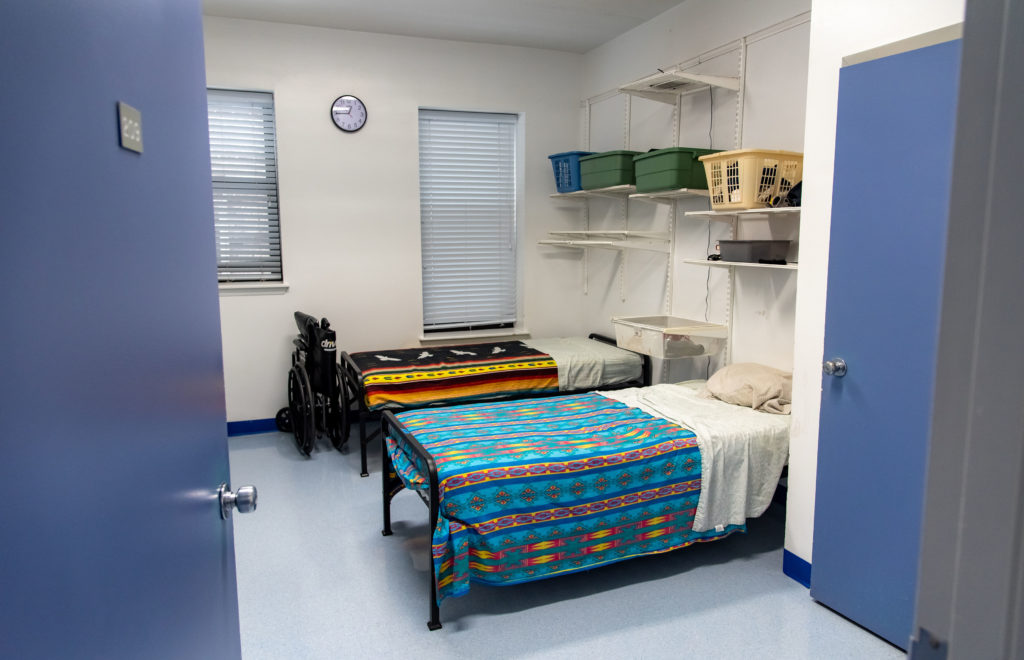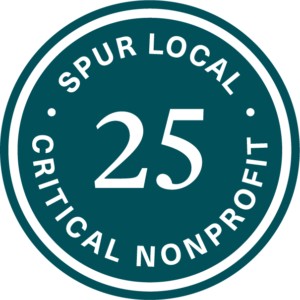
When patients first arrive at Christ House, many initially have a hard time falling asleep and staying asleep. Of patients admitted in 2021, over 40% came directly from the street or shelter. On the street, a person has little to no barrier between themselves and the elements, sounds of traffic, other people out at night, or even rodents that scurry the grounds for food. One of our Year Long Volunteers shared an interaction with a patient recently:
“He asks about the hours of the TV room and then explains that he is having trouble sleeping. Just then, the night nurse joins us in the hall. The patient is talkative and explains his recent sleeping situation where he was sleeping outside of a building and a rat ran across his body. He dramatically acts out his terror in a comedic manner and the night nurse and I take in all he has to say. He is looking for us to laugh, we giggle, and he smiles knowing we appreciate his performance. He assures us that while he does not think there are rats at Christ House, he is still having trouble falling asleep in his new environment.”
Even individuals who manage to secure a bed in a shelter each night face obstacles to a good night’s rest. Studies show that “…sheltered individuals may encounter significant sleep disruptions due to group sleeping accommodations, which often consist of cots placed alongside one another in large open areas….People who stayed in emergency hostels and shelters cited lack of privacy, sleep disturbances, and uncomfortable sleeping conditions.”[i] Another previous patient once recounted his time at a local shelter, sharing his fear of sleeping due to the rampant bed bugs and the possibility that his belongings could be stolen. He also struggled to sleep the first several nights at Christ House.
A lack of sleep not only affects a person’s energy, but can also increase risk for a number of conditions: “One study conducted among homeless individuals found reports of increased adverse health outcomes when exposed to cold, wet winters as opposed to extreme heat, with greater reports of depression and inability to maintain overall wellness.” According to Cleveland Clinic, some of the more serious long-term side effects linked to a consistent lack of sleep include “high blood pressure, diabetes, heart attack, heart failure or stroke.”[ii]
Christ House is a medical respite facility, which means our clinical staff understands the importance of patient rest when it comes to healing. In an effort to assist patients in improving their sleep, clinical staff provides:
- Ear plugs
- Sleep hygiene counseling
- Referrals to sleep medicine
- Counseling of effects of drugs, alcohol, and caffeine on sleep quality and cycles
- Counseling and support on Continuous Positive Airway Pressure (CPAP) use when needed
In addition to these resources, Christ House enforces quiet hours after 10pm, and offers support in addressing underlying medical and psychiatric conditions that can disturb sleep (e.g. depression, anxiety, bipolar disorder, sleep apnea, COPD, asthma, etc.).
By providing these sleep resources as well as an atmosphere that promotes community, healing, and compassion, patients are able to rest better day by day. When asked, “What does wellness mean to you?” many patients mention the importance of rest in their response. One former patient once shared, “Now I finally feel good! I am safe and I sleep through the night.”
Here at Christ House, patient healing is our first and foremost priority. Supporting patient sleep health is just one of the many ways our staff provides comprehensive and compassionate care for men experiencing homelessness in DC.
Sources:
[i] Physical Activity and Sleep Problems in Homeless Adults
[ii] Here’s What Happens When You Don’t Get Enough Sleep





Leave a Reply